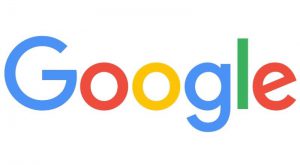One of our ongoing objectives at Recyclist is to increase the number of people who engage with our customers’ recycling websites. To do this, we recently tested a new strategy: paid advertisements on Google and Facebook. We sought to determine whether online ads are an effective outreach strategy, and if so, does one platform outperform the other. (Spoiler alert: Yes they are effective, and Facebook runs away with the win.)
While both are big business — in the first half of 2016, Facebook’s ad revenue was $5.6 billion, and Google’s was a behemoth $17.4 billion — the two companies’ ad sales vary in small but significant ways. Google’s ad system, called AdWords, is based around keywords. A given ad will be shown when someone searches for the keywords tied to the ad and it can compete against all the other relevant ads in an automated auction. Facebook ads are also sold via auction, but instead of using keywords, they are built around targeting specific age and gender populations (or share your ad with Facebook at large). Critical to our purpose, both companies allow you to limit your ad’s reach to certain geographic locations.
Google AdWords and Facebook Ad Features |
 |
 |
Pay per click?The ad’s owner is charged only when a user clicks on it. |
✓ | ✓ |
Ad sale via auction?Ads are entered into an auction with similar ads to determine what is shown to users. |
✓ | ✓ |
Target by location?Target ads to users only in certain geographic areas. |
✓ | ✓ |
Driven by keywords?Only Adwords are based around keywords that match a user’s search terms. |
✓ | |
Target by age and gender?Only Facebook ads can be targeted to certain age and gender demographics. |
✓ |
In our test, we set up Google AdWords and Facebook campaigns for three of our customers: a mid-sized city, a small town, and a rural county. Each campaign was limited to the geographic area of the jurisdiction and had a strict budget of $10/day. The experiment lasted three months, and the results were compelling. Here is what we learned:
Online ads work
Across the board, our Google and Facebook ads both drove traffic to our customers’ websites. Some ads generated a steady stream of traffic, while others were more of a dribble, but all three websites saw traffic that they otherwise wouldn’t have.
Facebook far outperforms Google
Our Facebook ads outperformed our Google ads by a huge margin. We earned four times the clicks and more than than five times the impressions with Facebook than with AdWords. (An impression is the total number of times the ad is displayed.)
Not only did Facebook ads outperform their Google counterparts in terms of clicks and impressions, but they also cost less. On average, a click on a Google ad cost about four times more than a click on Facebook. Here are the results for $500 spent on each platform:
Platform |
Clicks |
Impressions |
Avg. Cost Per Click |
 |
583 |
18,305 |
$0.86 |
 |
2,331 |
100,581 |
$0.21 |
Why such a significant difference in performance? We have a theory. Google ads are displayed when a user’s search terms match ad keywords, which means our ads were shown only to the people who live in the target locations and searched our specific waste and recycling keywords. In contrast, our Facebook ads were shown to people in the target locations, whether or not they were looking for recycling information. As a result, we believe the Facebook ads reached a much broader population.
You pay only for results
The pay-per-click model of online ads confers a major advantage over print ads. With a newspaper, you run an ad for a set cost, hoping enough people in the circulation happen to see it and respond to it. With online ads, you pay only when someone clicks on your ad. In that sense, the ads you pay for have already proven themselves effective. Even better, you are always in control of how much you spend; set your budget, and the ad stops running once you max out.
You can target specific populations, especially with Facebook
Google and Facebook both allow ad campaigns to target certain geographic areas, but only Facebook can additionally target age and gender demographics, interest groups (e.g., automotive) or behaviors (e.g., purchase history). This is an invaluable tool for outreach managers. If you’re having trouble reaching residents in a certain zip code, or are trying to make a big impact among teens and young families, you can design your Facebook ads for those specific populations and check a few boxes to make sure that’s who sees them.
They’re easy
Setting up the ad campaigns took us only a few hours, with an hour or less of maintenance per week. Facebook and Google also offer tutorials and assistance for new users.
We’re here to help
Through this experiment, Recyclist amassed a trove of data centered around using ads as a recycling outreach strategy, and we’re excited to use our knowledge and experience to set up an ad campaign to lead residents to your Recyclist website. We’ll help you create your ad campaign using strategies we’ve tested and know will work. And, as always, we’ll be on the lookout for new ways to make your outreach simpler, clearer and more effective.
Editor’s Note: Google AdWords now allows for demographic targeting as well.